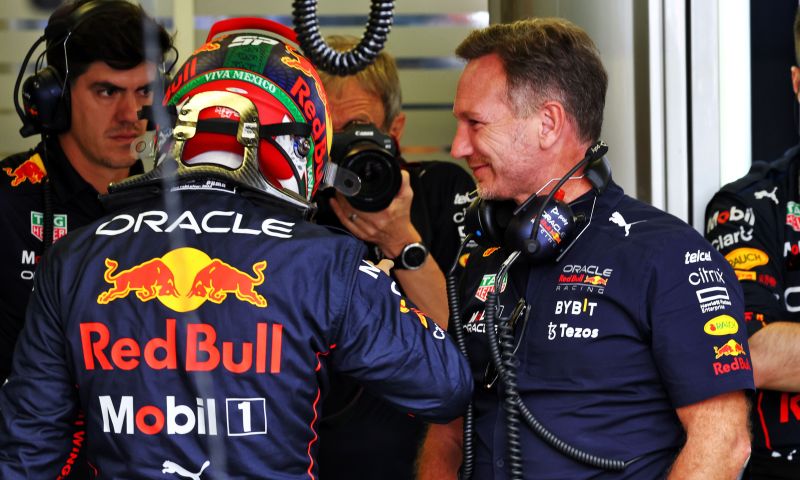General

The secret of Red Bull's success and why Ferrari can learn from it
- GPblog.com
Since Christian Horner's arrival at Red Bull Racing in 2005, Ferrari has changed team bosses no less than four times. The Italian racing stable has a lot to learn from Horner's success with the Milton Keynes-based team.
Horner is the longest-serving team boss on the Formula 1 grid. The 2022 season was the Briton's eighteenth as Red Bull boss. Appointed head of Red Bull in January 2005, Horner became the youngest team boss at the time. Not only were some pretty good results achieved immediately, Horner also played a key role in the hiring of Adrian Newey as chief technical officer.
Red Bull failed to achieve more than three seventh-place finishes and one fifth-place finish in the constructors' championship in its first four seasons, but Horner was not fired. The team trusted the process towards the top and was rewarded for it. In his sixth year as team boss, Red Bull managed to win the constructors' title with Sebastian Vettel and Mark Webber. Three more dominant years as F1 world champions followed.
Horner stays despite mediocre results
After four world titles in a row, things unfortunately went downhill for Red Bull. After the introduction of the hybrid era in 2014, it became clear that the Austrian racing stable was no longer the dominant force in F1. In the seven seasons that followed, Red Bull had to watch Mercedes win title after world title. Red Bull itself struggled with many reliability problems and between 2017 and 2019, the team had to make do with third place in the constructors' championship.
However, rumours of a possible Horner resignation barely surfaced. Although Red Bull was not where it wanted to be, the team did not lose faith in their team boss. In the end, this worked out favourably, as Red Bull managed to win another title with Max Verstappen in 2021. The following year too, the team proved to be dominant, winning its first constructors' title since 2013.
Red Bull shows confidence in employees
Under his leadership, Horner has built a team with an excellent atmosphere. Red Bull always tries to get the best out of all team members and although the reliability of the car has not always been optimal (partly thanks to the Renault engine), Red Bull has always had the strategy right. There is excellent cooperation, both between engineers and drivers.
After Horner, Franz Tost is the longest-running team boss in F1 at the former Toro Rosso and now AlphaTauri, Red Bull's sister team. The team has already trained many talents with Verstappen and Vettel being the biggest success stories. It is clear that both teams share the same approach. At AlphaTauri, there is perhaps less pressure on the performance of the car, as the sister team is mainly designed to give Red Bull juniors experience in the top class of motorsport. However, Tost's role again shows that poor results do not immediately require you to sack your team boss.
Having a long-term team boss, along with other regulars in key roles (think Newey and Helmut Marko), builds security in the team. Employees know that the team trusts them and that people will not just be fired when things get tough. This creates a healthy team atmosphere in which (almost) the same group of people work together towards the same goal.
So Ferrari can definitely learn something from the organisation at Red Bull. Stefano Domenicali, Marco Mattiacci, Maurizio Arrivabene and now Mattia Binotto, the four men all failed to win Ferrari's long-standing trust. The Italians' title drought has been running since 2008. If the team wants to find success in the sport again, a lot will have to change in Maranello.
A lot of pressure is being put on employees, as Ferrari sends the message that poor or mediocre results will be immediately punished by dismissal. If Ferrari were to focus on the long term for once, the team could create a trusting environment just like Red Bull. Ferrari's new team boss will also feel a lot of pressure on his shoulders from the start after the rapid departure of his predecessors. Mistakes happen in every team, but it's all about how they are dealt with.

